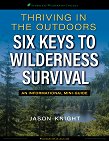Syllabus for the Alderleaf Wilderness Certification Program
The Alderleaf Wilderness Certification Program trains students in ecological knowledge and wilderness skills through rigorous, hands-on, field-based education. The program prepares students to work in a variety of environmental fields in positions such as naturalists, outdoor educators, wilderness guides, and environmental field technicians. The nine-month program trains students in natural history, ecology, wildlife tracking, wilderness survival, ethnobotany, permaculture, and teaching / leadership skills. The course concludes with a naturalist evaluation to assess and certify each student’s level of skill and knowledge. The course is designed to stand alone as vocational training or fit into a multi-year academic degree.
MODULE 1: Naturalist Skills: The Plants, Animals, and Ecology of North America
It is important for the environmental professional to be able to identify and interpret the major living and non-living features of the natural environment within the region in which they operate. In this module of the course, students learn the basics of natural history, taxonomy, weather, geology, botany, and wildlife of North America.
Objectives:
On completion of this module you will:
- Be able to identify common northwest flora and fauna
- Understand the basics of geology, weather, ecology, astronomy, botany, taxonomy, natural history, and wildlife of North America
- Be familiar with venomous animals, poisonous plants, and other wilderness hazards
- Understand how to keep a naturalist field journal
- Develop effective navigation and map reading skills
Module 2: Wilderness Survival: Primitive and Modern Survival Techniques
Wilderness survival skills are essential for persons working in the backcountry and can also save lives in natural disasters. This module of the program provides training in both traditional and modern survival techniques and includes a study of indigenous life-ways.
Objectives:
On completion of this module you will:
- Understand survival priorities and hazards
- Be able to construct both emergency and long-term shelters from natural materials
- Know how to locate, transport, filter, and purify water from natural sources
- Be able to create fire using several different primitive techniques
- Become adept at creating a variety of primitive survival tools for hunting and gathering
- Have a basic understanding of the indigenous cultures local to the Pacific Northwest
Module 3: Wildlife Tracking and Observation: Interpreting Tracks and Sign
Many types of wildlife are shy, elusive, and/or nocturnal. Understanding how to identify and interpret the tracks, trails, signs, and vocalization of animals is a valuable tool in wildlife research and monitoring, as well as wilderness guiding and education.
Objectives:
On completion of this module you will:
- Be able to identify footprints of a wide variety of mammals, birds, and insects
- Be able to interpret gait patterns and behaviors from track patterns and signs
- Gain experience in trailing ungulates through varied terrain
- Be able to interpret bird behaviors and vocalizations
- Understand how to minimize disturbances and effectively observe wildlife
- Learn the basics of using CyberTracker data collection software and equipment
Module 4: Ethnobotany: Edible, Medicinal, and Utilitarian Uses of Wild Plants
In this module students learn how to properly identify, gather, and prepare wild plants for meals, medicines, and tools. This module of the course also covers basic herbal medicine, permaculture, and forest stewardship.
Objectives:
On completion of this module you will:
- Be able to identify common wild edible, medicinal, and utilitarian plants
- Know how to prepare herbal medicines including tinctures, salves, and decoctions
- Understand the three primary methods of basket construction
- Understand the ethics of harvesting wild plants
- Become familiar with wildcrafting and small scale organic gardening
- Know the basics of permaculture, restoration, and forest stewardship
Module 5: Nature-Based Education: Teaching and Leadership
Environmental professionals need to plan, communicate, and manage groups and projects. This section of the course covers leadership and communication styles, lesson/trip planning, wilderness first aid, and project coordination.
Objectives:
On completion of this module you will:
- Have enhanced communication skills for working with diverse groups
- Understand curriculum planning and assessment
- Understand the experiential education model
- Understand indigenous forms of education
- Have completed basic wilderness first aid training
- Gain experience in coordinating an environmental research project
Required Resources:
- National Audubon Society Field Guide to the Pacific Northwest (1998) Alden
- Puget Sound Country (1995) Kruckeberg
- The Kamana Naturalist Training Program (2001) Young
- Mammal Tracks and Sign (2003) Elbroch
- Bird Tracks and Sign (2001) Elbroch
- Mammals of the Pacific Northwest (1998) Maser
- Plants of the Pacific Northwest Coast (1994) Pojar and MacKinnon
- Discovering Wild Plants (1990) Schofield
- Medicinal Plants of the Pacific West (1993) Moore
- Plant Technology (1998) Turner
- Wilderness Survival (2005) Elbroch
- Primitive Technology (1999) Wescott
- Primitive Technology II (2001) Wescott
- Learning the Language of Birds (1997) Young (audio cassette)
- Advanced Bird Language (1999) Young (audio cassette series)
- Wilderness First Aid (2005) Backer
Is The Essential Wilderness Survival Skills Course Right for You? Take the "Online Survival Training Readiness" Quiz
See for yourself if this eye-opening course is a good fit for you. It takes just a few minutes! Get your Survival Training Readiness Score Now!

Grow Your Outdoor Skills! Get monthly updates on new wilderness skills, upcoming courses, and special opportunities. Join the free Alderleaf eNews and as a welcome gift you'll get a copy of our Mini Survival Guide.

 The Six Keys to Survival: Get a free copy of our survival mini-guide and monthly tips!
The Six Keys to Survival: Get a free copy of our survival mini-guide and monthly tips!
Learn more